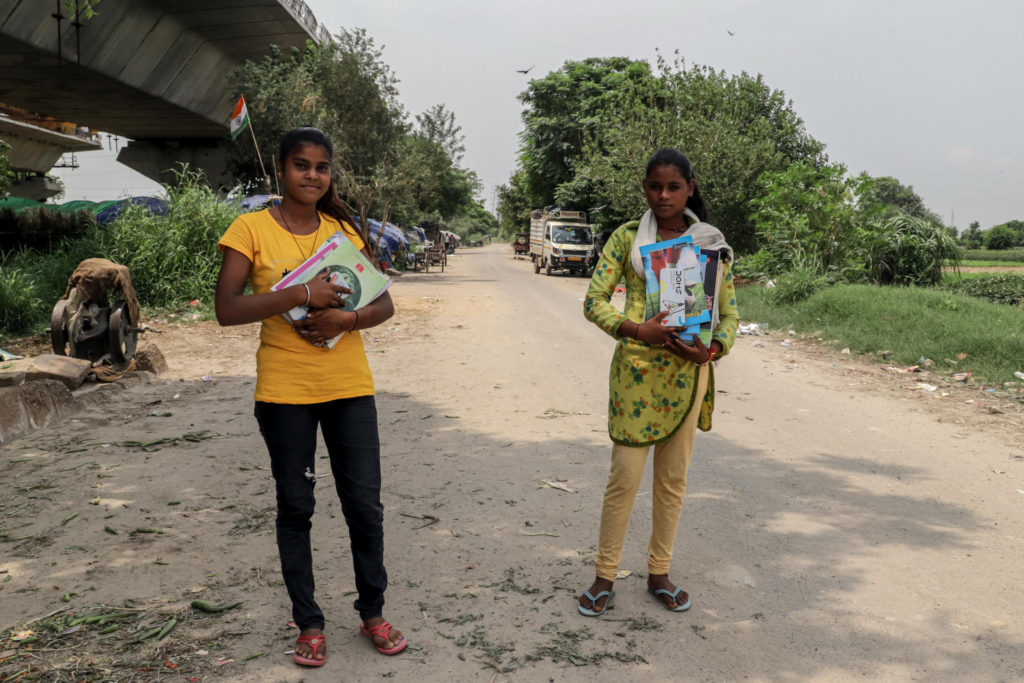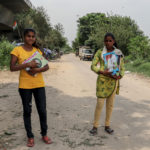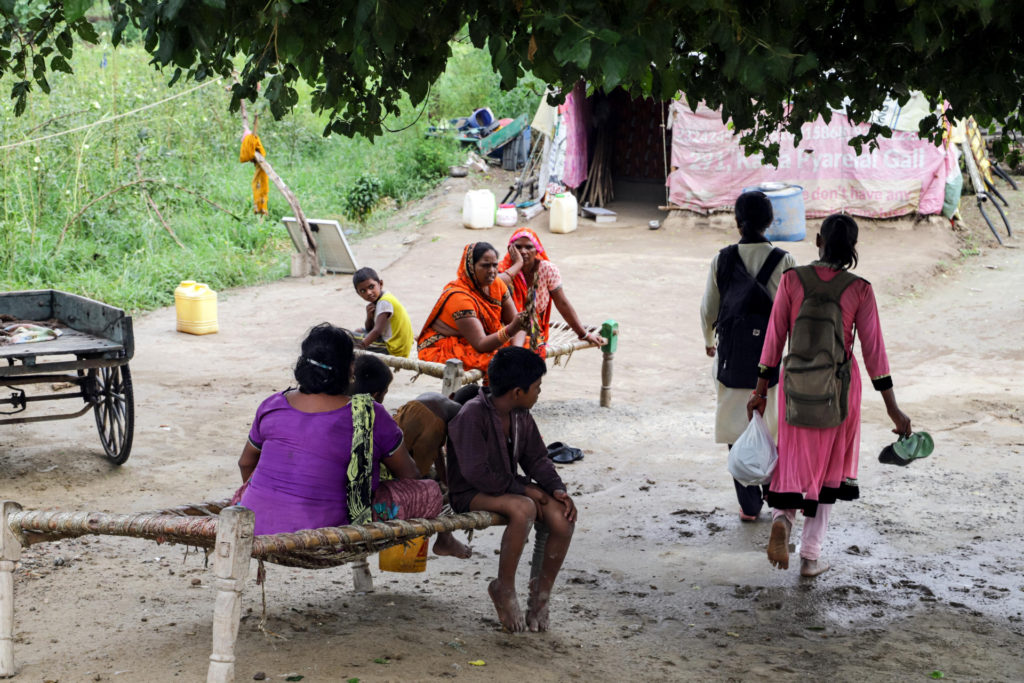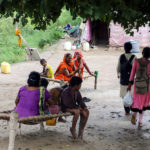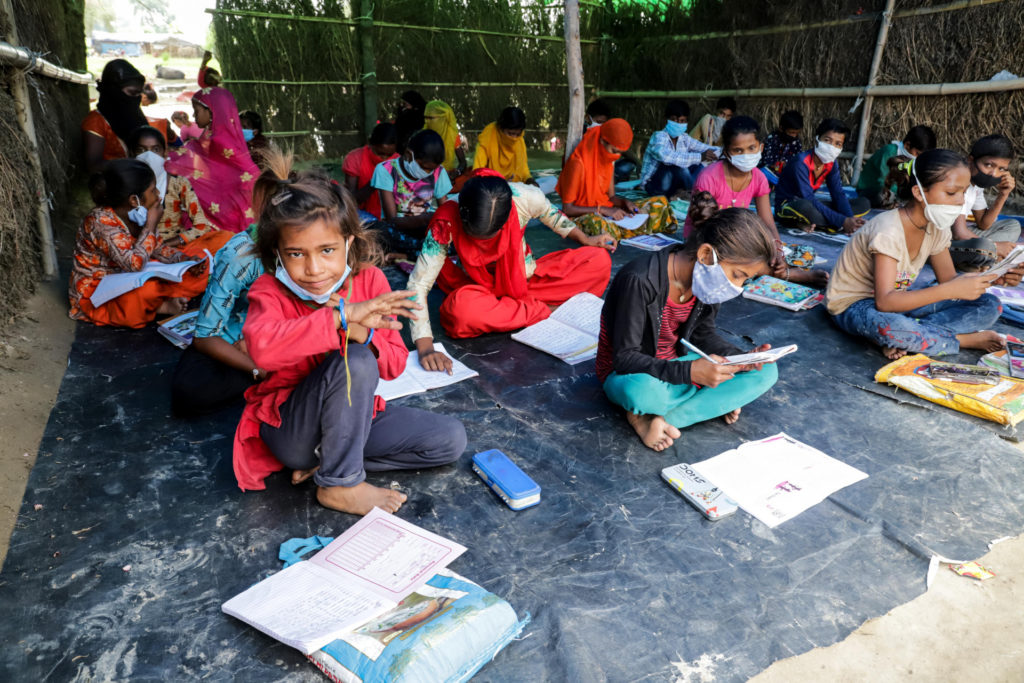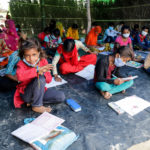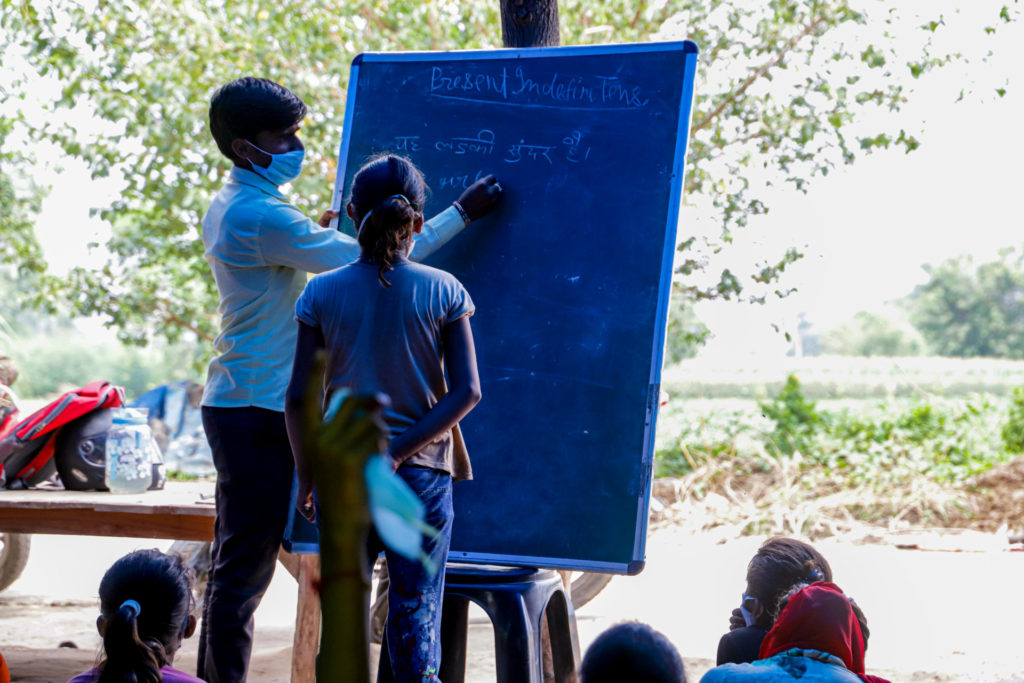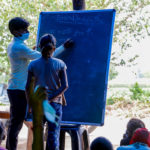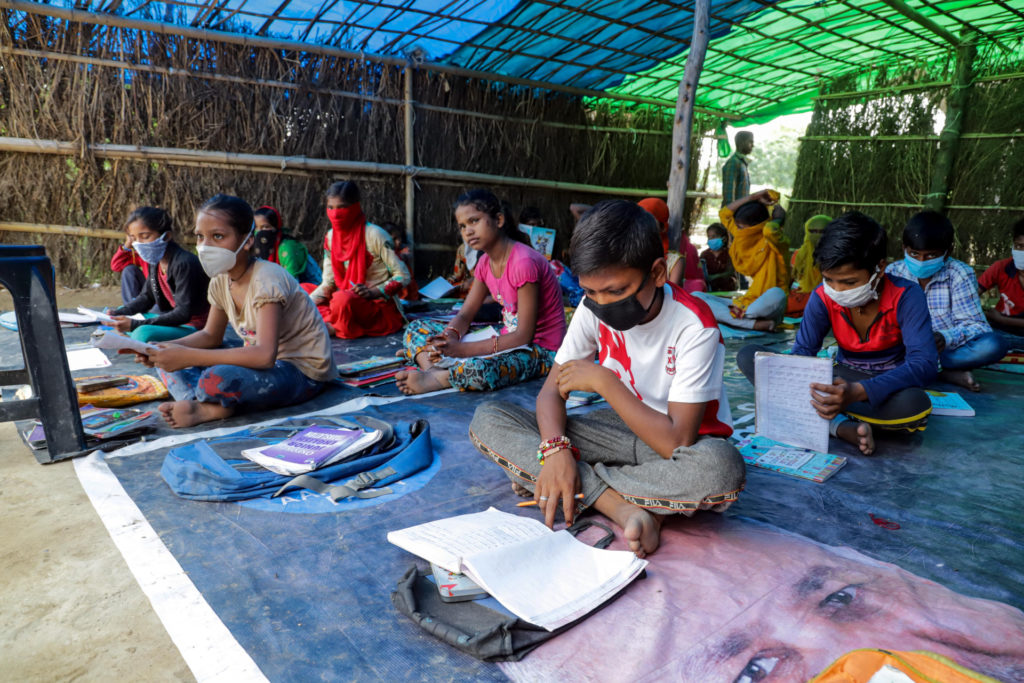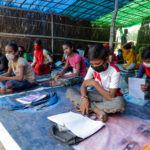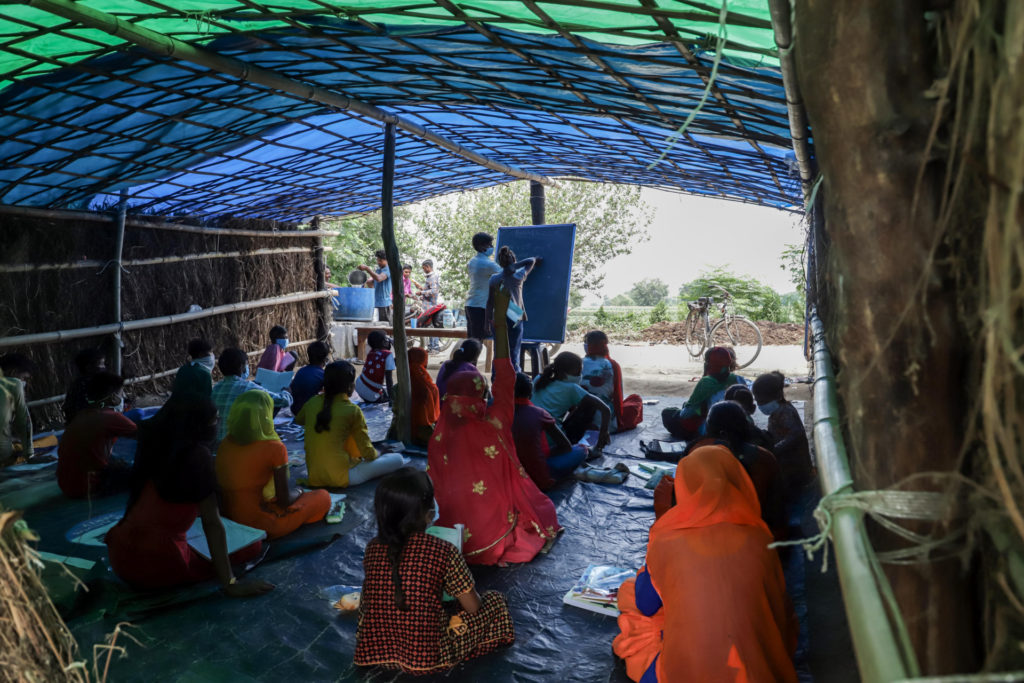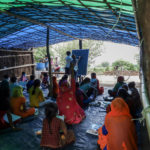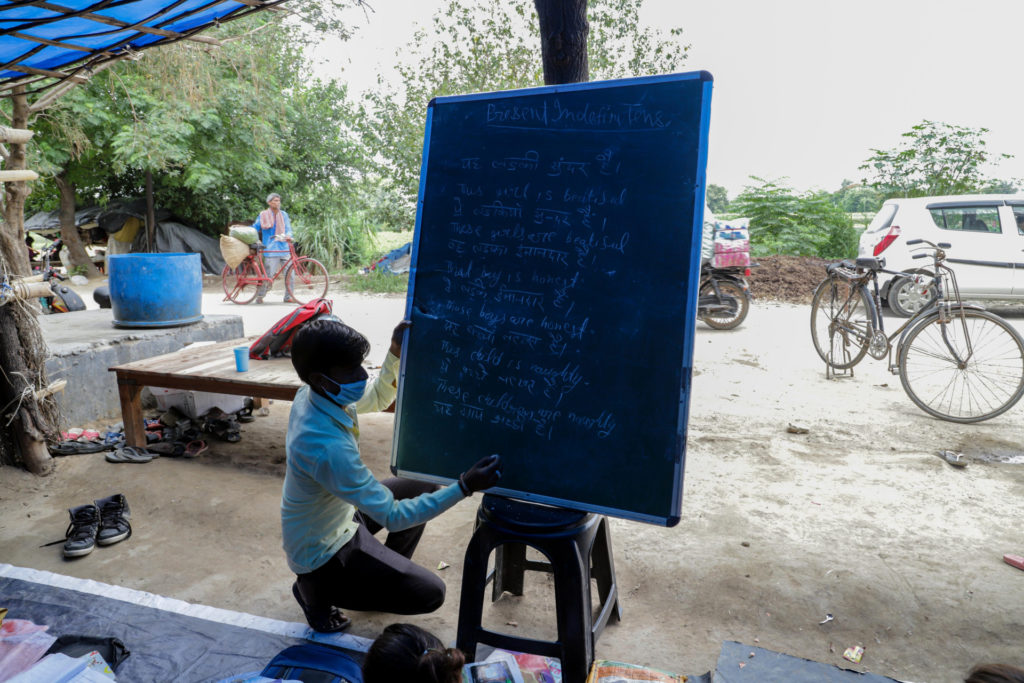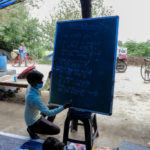Pandemic deprives 40 pc children in Delhi of right to education
Despite lockdown being eased in many states, educational institutes have remained shut and are continuing with online lessons. However, the most vulnerable parts of the society have been paying a heavy price due to a huge digital divide. Children in Yamuna Khadar village in eastern part of New Delhi have found themselves falling behind in the absence of any digital device to continue online education. A small coaching centre run by few youngsters has come as a saviour offering to provide continuing education to these underprivileged students.
Under the firm watch of New Delhi’s Mayur Vihar metro station, a narrow, dusty road swirls its way to the village of Yamuna Khadar. Amidst the perpetual din of construction workers, mainly migrants living in make-shift huts, a coaching centre has silently been functioning for last five years in a road-side shack. “When I first started teaching, students didn’t know the basics of mathematics and science,” says Panna Lal, 22, a teacher at the centre since 2015.
Although students would go to a nearby government school, most of them would fail in the ninth grade and drop out. Their families would then force boys into becoming unskilled labourers and get their young girls married off as soon as possible.
Since most families in the village comprise tenant farmers who work on rented land, children are under pressure to forego studies and join the parents. It is this problem that Lal set out to address by creating the centre that charges INR 100 per month from kids in lower classes and INR 250 from kids in higher classes.
“We had a hard time arranging for teachers who would be willing to teach students on a meagre salary. We also needed money for buying books and stationaries for the students. A few college-going students agreed to pitch in and we started this centre with barely five students,” he adds.
All the students belong to the most vulnerable sections of society. “Most of them don’t even have an Aadhar card and get no government benefits in ration or shelter. They also don’t have any public hospitals nearby to go to. Their make shift homes have lack even electricity and potable water,” Kumar adds.
However, the lockdown of the past five months has disrupted regular studies in the centre and the teachers fear that the students may have fallen behind their peers due to the lack of means to continue their education online, especially as the even the coaching centre had to be shut due to the pandemic. “Many still fear coming to school regularly. We teach students in a very cramped space under a roof made of twigs. We can’t arrange for social distancing or even clean toilets to curb the risk so that the risk of infection is less,” explains Dev Kumar, another teacher at the centre. The centre was restarted in mid-July but there is a lot of catching up that needs to be done as most of the students, especially the smaller kids, have forgotten all that they learnt.
The children at Yamuna Khadar aren’t the only ones lagging behind. Data collected by Delhi government’s directorate of education (DoE) shows that less than six out of 10 government school students in Delhi could access virtual learning through online classes. It shows that more than 40 pc of underprivileged students have been cut off from accessing any kind of education since the lockdown. Seven months into the battle against the Covid-19 pandemic, schools still remain shut and children have lost almost an year of their studies.
However, because of closure of schools and the break in studies due to absence of digital devices, the number of students coming here has jumped manifold. While before the pandemic, there were 300 students in two centres, the institute has added five more centres with another 550 students, making it a total of 750 students in seven centres. For the students and their families, the coaching centre has come in as a much needed respite and which helps them overcome, at least partly, the failure of the government to provide basic facilities like education and end the violation of the children’s basic right.

